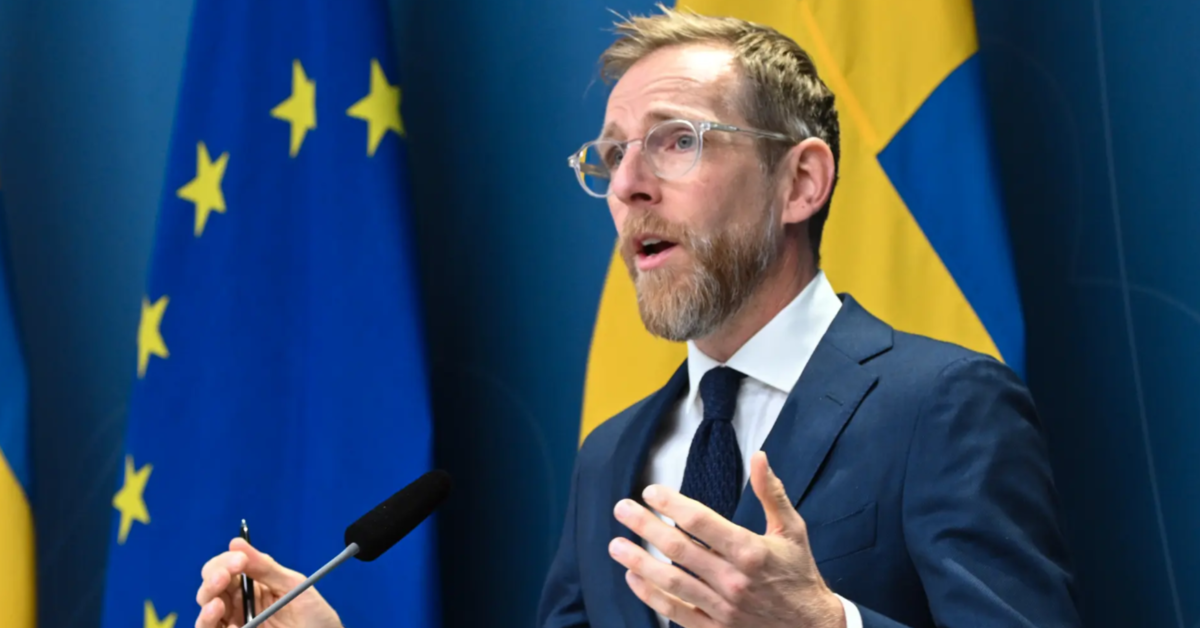At a Glance
- On February 14, Indonesia will vote for its president, vice president, and national and provincial legislatures in the world’s largest elections in a single day.
- President Joko Widodo’s complex legacy of stable economic growth, neutral foreign policy, and alleged democratic backsliding might see a more tumultuous turn with his de facto endorsed candidate, Prabowo Subianto, leading polls.
- A likely Prabowo-Gibran administration might see continuity on trade openness, but a return to a less pluralistic Indonesian democracy and, with it, greater legislative challenges in pushing ahead a coherent social and economic agenda.
Indonesia Elections 101
Indonesia—the world’s second biggest Muslim-majority country and third largest democracy consisting of 204 million voters—goes to the polls on February 14, 2024. The president, vice president, both chambers of its bicameral legislature, and provincial-level legislatures will all be decided in the single day election—the world’s largest. This is also Indonesia’s sixth legislative election since its 1999 popular uprising against then-President Suharto, marking the nation’s transition to democracy.
Outgoing President Joko “Jokowi” Widodo has presided over a decade of stable growth, investment inflows, infrastructure development, and social stability. With enduring popular support for Jokowi and his dominant appeal to voters, the three presidential candidates are all largely positioning themselves as Jokowi’s successor in stewarding the economy. Businesses can expect continuity in economic policies: an emphasis on foreign trade and investment coupled with select resource nationalism to move Indonesia up the industrial value chain; continued focus on infrastructure development; and focus on jobs and economic development beyond Jakarta. However, the candidates diverge significantly in other policy issues.
As presumptive kingmaker, Jokowi has thrown his support behind controversial military figure and former rival Prabowo Subianto and has overcome legal barriers to maneuver his son as the vice presidential candidate. While their ticket has held a comfortable lead in polls, the gap has recently narrowed.
Indonesia’s geopolitical significance
Indonesia’s elections will be important for global businesses to watch. Indonesia is an attractive market for investment due to its sheer size and abundance of natural resources—particularly those that fuel the green transition as Indonesia sits on the world’s largest nickel reserves. Amid de-risking trends and reshuffling of geopolitical cards, companies are also looking to Indonesia’s potential as a manufacturing powerhouse that could in time match the role Vietnam is playing as the “new China.”
Under Jokowi, Indonesia has also played an increasingly important role in regional geopolitics as an economic and security heavyweight, including as a recent Chair of Association of Southeast Asian Nations (ASEAN) and the G20. Indonesia has the largest Navy in Southeast Asia, it jointly controls some of the most critical trade routes and shipping lanes including the Straits of Malacca and the lower part of the South China Sea, and it is the nominal “big brother” of ASEAN—an important regional economic bloc that has enabled the region to navigate and balance relations with the US and China.
Jokowi’s foreign policy has also been characterized by neutrality and increased economic sovereignty, evidenced by Jokowi’s abrupt nickel export ban requiring (foreign) investments in higher value chain processing facilities to be made in Indonesia in a bid to move up the green economy value chain. This has impacted the geopolitics around green economy resources, preventing either the West or China from gaining a tenable toe hold in nickel.
Prabowo’s lead narrows
Three contenders are vying to succeed the outgoing term-limited President Widodo. They are Prabowo Subianto, current Defense Minister and repeated contender for the presidency; Ganjar Pranowo, a two-time Governor of Central Java and nominee of Jokowi’s Party Indonesian Democratic Party of Struggle (PDI-P); and Anies Baswedan, a prominent academic and former governor of Jakarta.
Prabowo himself is popular. His slick social media rebrand as an avuncular and humorous “grandpa”—a more palatable window dressing to his firebrand machismo—has taken Indonesia’s TikTok youth by storm. Indonesian youth have few memories of the Suharto-era and Prabowo’s prominent role in it (see below in Introducing the Candidates). Jokowi, seeking to secure his own political dynasty outside the PDI-P, has maneuvered to place his eldest son, the 36-year-old Gibran Rakabuming Raka, as Prabowo’s running mate. Riding on Jokowi’s star power, Gibran, a youthful voice in pre-elections debate, is becoming a celebrity in his own right.
With half of the electorate under 42, youth concerns on unemployment and inflation dominate agendas. Jumping on this pulse, Prabowo’s opponents—Ganjar, Anies and their respective running mates—have edged out Prabowo in the pre-election rounds of televised policy debates. Their laser focus on policy issues, inflation and jobs, green economy, and sustainable development won out against Prabowo’s dicey quickness to temper. Gibran nevertheless held his own. All candidates seem nearly indistinguishable on the economy—it is an undisputable voter and national priority.
Back to the Future
The continuity of incumbent President Jokowi’s defining 10-year legacy is of substantial importance in this election. Hitching his wagon to long-time rival Prabowo, Jokowi will ensure that the broad strokes of his economic legacy and foreign policy trajectory will be sustained. Prabowo has also pledged to ensure survival of Jokowi’s graft-plagued mega-development new capital city project, Nusantara (a whole other island away from the populous Java)—a capstone of Jokowi’s legacy.
Jokowi’s endorsement of Prabowo, however, does not bode well for Indonesia’s political pluralism. Where Jokowi’s later term was marked by what critics saw as democratic backsliding, Prabowo might prove even less accommodating of domestic political pluralism and Indonesia’s dexterous foreign policy.
Under a likely Prabowo presidency, Indonesia’s foreign policy might soon prove an oscillation between abrasive erraticism, driven by Prabowo’s anti-Western skepticism, and a belated sensibility informed by aides or other influencers within his cabinet. Indeed, Prabowo has often made anti-American and anti-West jabs, but also followed up with attempts to mellow concerns about deviation from Indonesia’s geopolitical balancing. At the 2023 Shangri-La Dialogue in Singapore, Prabowo unveiled a derisory Ukraine peace plan that was almost universally panned as unrealistic and accommodating of Russian encroachment. Such an erratic foreign policy in all could be injurious. Missing Indonesian leadership in the region could also imperil a unified ASEAN stance on Myanmar and the South China Sea.
This election could also mark a significant moment of deterioration of Indonesia’s democracy. For a time, Jokowi was an icon of progressive pluralism. With a humble background as a son of a furniture salesman, his rise was remarkable amid a dominant political elite rife with patron-client relationships. As Jokowi’s relations with the PDI-P soured, his lack of a political base meant he needed to secure his own political power outside the Party. This manifested in an expediency of what critics alleged as undemocratic practices. These include an increased use of coercion against opposition politicians, defanging of the country’s anti-corruption institutions, and a revival of military involvement in civilian politics. In a more recent and highly controversial case of alleged political interference, a Constitutional Court ruling allowed his son, Gibran, to run in the elections as vice president despite not meeting the 40-year-old minimum age limit. Prabowo’s accension to the highest office, bringing with him the ghost of the Suharto-era, will mark a gloomy turn in Indonesia’s democratic trajectory.
In the realm of messy coalitional politics in the House of Representatives, the post-electoral reshuffling of Indonesia’s tenuous party coalitions—without Jokowi’s adroit diplomacy and potentially under Prabowo’s abrasiveness—might also encumber any effective social and economic development agenda that Indonesia has enjoyed in the last ten years.
Introducing the Candidates
Given the broad plurality of Indonesia’s national legislature, any government in office usually comprises a broad coalition of parties forged in post-election horse-trading. Jokowi’s own party, the PDI-P, controls barely a fifth of the House of Representative seats despite being the largest party. It is, in fact, part of a sprawling ruling coalition across eight parties comprising Islamist factions, military-aligned right-wing nationalists, and center-left liberals that together control 82% of seats. It is for this reason that individual parties are outshone in importance by their presidential candidates.
PRABOWO SUBIANTO
Gerindra Party (Great Indonesia Movement), Right-wing nationalist
 There is much to be skeptical about Prabowo. In a relative new democracy still fresh with memory of the Suharto-era military-led violence and repression, Prabowo’s close and proud links to the old regime has been seen as portentous of bad things to come. A former son-in-law of Suharto himself, Prabowo continues to be dogged by human rights violations from the Suharto-era, during which he was a military officer of Suharto’s feared paramilitary units, complicit in torture and extrajudicial killings across the archipelago.
There is much to be skeptical about Prabowo. In a relative new democracy still fresh with memory of the Suharto-era military-led violence and repression, Prabowo’s close and proud links to the old regime has been seen as portentous of bad things to come. A former son-in-law of Suharto himself, Prabowo continues to be dogged by human rights violations from the Suharto-era, during which he was a military officer of Suharto’s feared paramilitary units, complicit in torture and extrajudicial killings across the archipelago.
This is a history he is mostly unashamed of. Running against Jokowi’s past decade of largely pluralist and progressive ethos, Prabowo has campaigned on his military and law-and-order credentials. Prabowo also has, at times, uncomfortable links with more hardline Islamic segments of Indonesian society.
In 2019, in his more recent of two previous failed bids for the presidency against Jokowi, his followers, inflamed by Prabowo’s demagogic rhetoric, staged deadly riots in Jakarta. Yet, despite the bitter two-time rivalry, Jokowi appointed Prabowo as the current Defense Minister in 2019 in a move to co-opt Prabowo’s party into Jokowi’s ruling coalition. The gloom over this appeasement has only worsened with Jokowi’s now de facto endorsement of Prabowo’s candidacy.
Prabowo’s running mate, Gibran Rakabuming Raka, is also Jokowi’s oldest son and the current mayor of Surakarta. He is largely untested and has challenges of his own: Indonesia’s politics is replete with attempted nepotistic dynasties and sons with political ambitions who have failed under scrutiny. The pressure on Gibran to secure his own takes away from a moderating force some might anticipate him to play on a Prabowo presidency, especially against the titan of Prabowo’s political experience. But with Jokowi’s son a key bride in the marriage between Jokowi’s and Prabowo’s power base, Jokowi might continue to exert some measure of influence as an éminence grise in the cabinet.
Prabowo’s economic policies: A broad sense of continuity can be expected with a Prabowo-Gibran administration. Prabowo has promised to uphold Jokowi’s economic vision—openness to trade and investment and continued infrastructural development, especially for Nusantara. With pressing economic priorities of the youth bloc, Prabowo can ill-afford letting his more jingoistic geopolitical worldview get in the way of business—and all the more so with fierce competition among Indonesia’s peers like Vietnam and Philippines to court trade deals with the West. This augurs an optimistic maintenance of Indonesia’s current geopolitical neutrality and trade openness to both Chinese and Western businesses alike. His friendliness to China and Russia might nevertheless see a broader weight of Chinese investment inflows (which are already covetously circling Indonesia’s wealth of strategic green economy resources). But Jokowi’s popular economic nationalism on these resources will likely endure and gain further speed under Prabowo’s own brand of nationalism.
GANJAR PRANOWO
Party Indonesian Democratic Party of Struggle (PDI-P), Center-left social progressive
 Ganjar, who was governor of Central Java from 2013 to 2023, is ironically seen as a spiritual successor to Jokowi. His genteel leadership style, development-focused economic vision, trade-led foreign policy, and progressive social policies are core “Jokowism.” His masterly handling of the Covid-19 pandemic as governor of the highly populous Central Java gained him an enduring popularity. When announced as PDI-P’s nominee, he was seen as the most electable presidential candidate. He nevertheless now polls behind Prabowo.
Ganjar, who was governor of Central Java from 2013 to 2023, is ironically seen as a spiritual successor to Jokowi. His genteel leadership style, development-focused economic vision, trade-led foreign policy, and progressive social policies are core “Jokowism.” His masterly handling of the Covid-19 pandemic as governor of the highly populous Central Java gained him an enduring popularity. When announced as PDI-P’s nominee, he was seen as the most electable presidential candidate. He nevertheless now polls behind Prabowo.
His PDI-P power base among liberals and progressives appears to be shrinking. Thus, his running mate makes sense. Mahfud MD is the former Chief Justice of the Constitutional Court of Indonesia and a recent Coordinating Minister for Political, Legal, and Security Affairs of Indonesia in Jokowi’s cabinet. Mahfud is closely linked with Nahdlatul Ulama (NUS), a mega powerbase of moderate Islam in the country and one that Jokowi (and thus Prabowo-Gibran) and Anies Baswedan also draw from.
Ganjar’s economic policies: A Ganjar-Mahfud administration would effectively deliver a Jokowi 2.0 in economic priorities and trajectories. Escaping the middle-income trap with a 7% GDP growth plan is a central plank, if not a herculean ambition. With a million Indonesians entering the workforce each year, the current post-Covid growth rates of 5% are inadequate in meeting job expansion needs, let alone lobbing Indonesia into the club of high-income countries. To this end, Ganjar is likely to follow the path dependency set by Jokowi: large infrastructural and development projects, and openness to trade but also, critically, foreign infrastructural investments. Cleaning up red tape and illegal fees, bolstering investments in manufacturing, and raising tax revenue are other supporting planks of this plan. In speaking at the American Chamber of Commerce on the campaign trail, his positions on Western trade and investments could not be made clearer.
ANIES BASWEDAN
Unaffiliated with any party
 Anies Baswedan is commonly described as the “antithesis” to Jokowi. His powerbase is deep within the conservative Islam electorate, especially in West Java. He is joined in alliance by his running mate, Muhaimin Iskandar, with the more moderate National Awakening Party (PKB) and the Nahdlatul Ulama (NU). In the infamously bitter 2017 Jakarta gubernatorial election, Anies won out over Jokowi’s preferred pick of the double-minority Chinese-Christian Basuki Tjahaja Purnama “Ahok” as Jakarta’s governor. Anies’ campaign had then launched a racist negative campaign against Ahok, mobilizing rancorous cleavages on race and religion. This backfired, however, as it created apprehension amongst his target voter base.
Anies Baswedan is commonly described as the “antithesis” to Jokowi. His powerbase is deep within the conservative Islam electorate, especially in West Java. He is joined in alliance by his running mate, Muhaimin Iskandar, with the more moderate National Awakening Party (PKB) and the Nahdlatul Ulama (NU). In the infamously bitter 2017 Jakarta gubernatorial election, Anies won out over Jokowi’s preferred pick of the double-minority Chinese-Christian Basuki Tjahaja Purnama “Ahok” as Jakarta’s governor. Anies’ campaign had then launched a racist negative campaign against Ahok, mobilizing rancorous cleavages on race and religion. This backfired, however, as it created apprehension amongst his target voter base.
Despite this, the Anies-Muhaimin ticket—Team AMIN—is tapped into the pulse of youth disaffection. They have promised expansionary job growth, combatting of inflation, and green energy infrastructure. Foreign policy has been largely ambivalent, with Anies articulating a desire for a more active Indonesia on the diplomatic stage. Team AMIN is polling as a close third.
Anies’ economic policies: Anies’ economic vision is not dissimilar from that of his rivals, agreeing on points of trade openness, job expansion, and combatting inflation. Touting his technocratic credentials, Anies has also promised giving reign to the technocrats in key positions. One other distinguishing position was planning 14 economic growth centers outside of the central island of Java. This “distinguishing” idea also happens to echo Jokowi’s principles behind the capital city move from Jakarta out of Java to Kalimantan’s Nusantara.
This content offers a high-level synopsis of current events. It is intended to provide information only, not opinion, and it is not representative of any specific EGA work.
For further advisory and insights on stakeholder communication and government relations in Indonesia and Asia-Pacific, reach out to richard.andrew@edelmanega.com to learn more.



